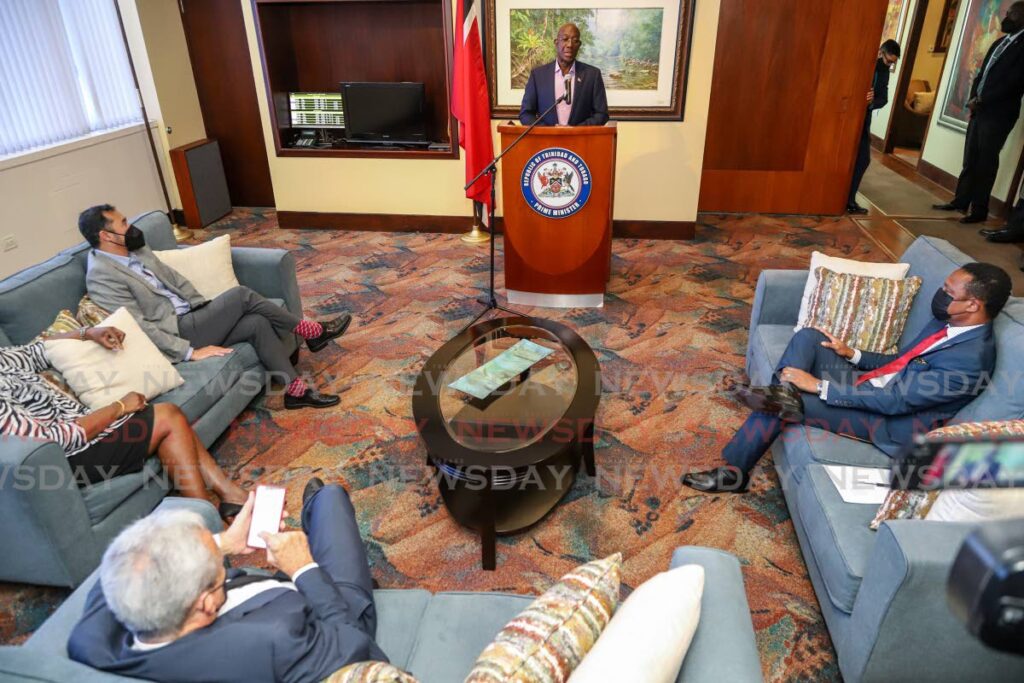PM: Caricom united against unfair international banking pressure

CARICOM has banded together to inform the international banking system that its policies on banking in the region are unacceptable and there should be greater dialogue.
On his return to the country, the Prime Minister said the issue was of grave concern for the region that faced undue sanctions based on suggestions that the regional system was vulnerable to terrorists and money launderers.
Dr Rowley was part of the Caricom caucus at the Roundtable Discussion on De-Risking and Correspondent Banking, at the Lloyd Erskine Sandiford Centre in Bridgetown, Barbados. He returned to Trinidad and Tobago on Thursday and addressed the media.
Rowley said he could not identify any specific bank that changed its mind on doing business in the region but highlighted that some international banks expressed concerns that they could be penalised heavily for interacting with regional banks accused of wrong doing. So concerned are such banks that some have chosen not to do business with regional financial institutions.
“Some of those banks that we've had long relationships with for decades, by now either have or are on the verge of saying that the Caribbean is not the place to continue doing business because of the risk climate that exists now.”
He said the banks were seeking to avoid being fined for associating with banks identified as being involved in dangerous activities like money laundering and terrorist financing. He said none of the banks have been “seriously affected” by the stance taken so far.
“If we allow the flow to continue, as it is going, it most certainly will put us in a position where others (other countries) are at the moment. At the moment, it is a very serious discussion and the outcome could be far-reaching.
"Local banks are very nervous. And that is why they are there with Caricom saying something has to be done about this. Because, if it happens to us, the consequences will be great.”
He said the "small man" could lose the ability to cash cheques, send or receive money abroad or make credit-card purchases.
The greater issue, he said, is that trade will be hampered as regional businesses will not be able to pay for and receive payment for goods and services.
The Prime Minister said the aim was to have the regional banking sector identified as an economic infrastructure and international banks refusing to do business with them could severely obstruct that.
Rowley said the region was facing an issue of the goal post being shifted with countries complying with international mandates such as Foreign Account Tax Compliance Act (FATCA) and then receiving new benchmarks that some of the international banks were not made to adhere to.
Rowley said, from Bermuda to Suriname, banks were facing exclusion from the international banking sector.
“Standards have to be set, which they are saying that we cannot meet. And even as we meet them, they keep changing the goal post and they can start taking action against us even as we are querying that we are not being treated fairly.”

Comments
"PM: Caricom united against unfair international banking pressure"